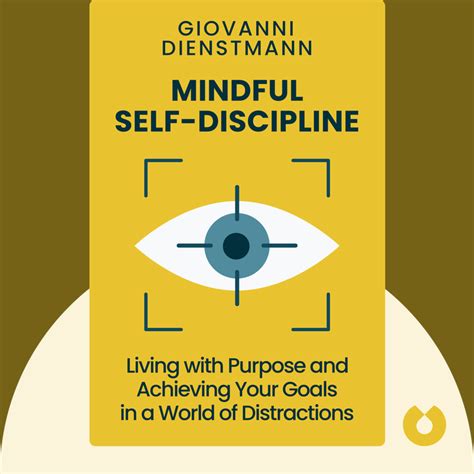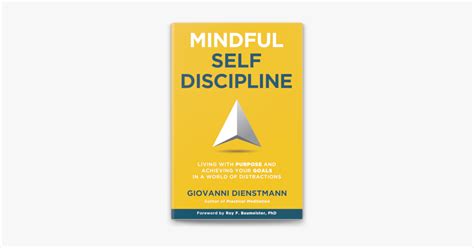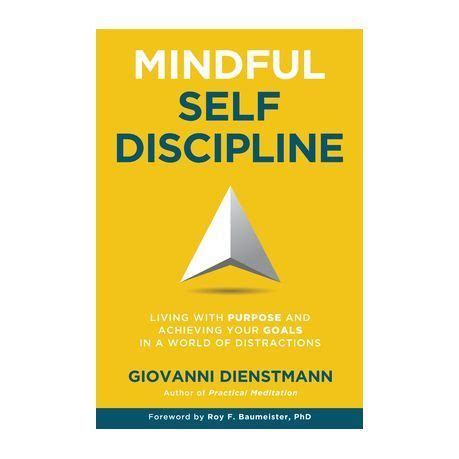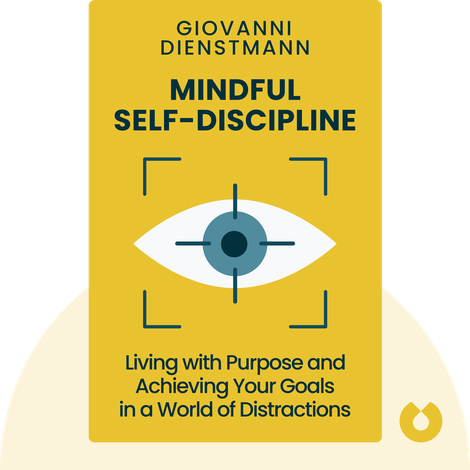In today’s fast-paced world, personal growth is essential for maintaining mindfulness and well-being. Setting self-growth goals can help you create a balanced life, where your mind, body, and spirit are nurtured. These goals are not just about achieving success but about becoming a more fulfilled and centered individual. From cultivating mindfulness through meditation to embracing lifelong learning, each step you take towards personal development contributes to a more meaningful existence. This article explores the top self-growth goals that can enhance your mindfulness and overall well-being, providing you with practical strategies to integrate into your daily life. Start your journey towards a more mindful and enriched life today.
Delve into this topic with terylblog.com for a comprehensive understanding.
1. Set Clear and Specific Goals
Setting clear and specific goals is the foundation of personal growth and mindfulness. When your goals are well-defined, they give you a sense of direction and purpose, making it easier to stay focused and motivated. Instead of vague intentions like “be healthier” or “improve myself,” aim to set measurable and achievable targets, such as “exercise for 30 minutes three times a week” or “read one self-help book per month.” By breaking down larger goals into smaller, manageable steps, you can track your progress and celebrate your achievements along the way. Clear goals not only help you maintain a positive mindset but also keep you accountable, ensuring that your efforts are aligned with your desired outcomes. As you achieve these goals, you’ll build confidence and momentum, propelling you further on your journey toward mindfulness and well-being.

2. Practice Daily Meditation
Daily meditation is a powerful practice for enhancing mindfulness and overall well-being. It allows you to create a peaceful space in your mind where you can disconnect from the stress and chaos of daily life. By setting aside just a few minutes each day to meditate, you can significantly reduce anxiety, improve focus, and increase your self-awareness.
To begin, find a quiet and comfortable place where you won’t be disturbed. Sit or lie down in a relaxed position, close your eyes, and focus on your breathing. Pay attention to each inhale and exhale, letting go of any distracting thoughts. It’s normal for your mind to wander; when it does, gently bring your focus back to your breath.
Consistency is key to reaping the benefits of meditation. Starting with just 5 to 10 minutes a day can make a noticeable difference in your mental clarity and emotional stability. As you become more comfortable with the practice, you can gradually increase the duration of your sessions. Daily meditation not only helps you stay grounded and present but also fosters a deeper connection with your inner self, leading to greater mindfulness and a more balanced life.

3. Engage in Regular Physical Exercise
Engaging in regular physical exercise is a crucial component of personal growth and well-being. Exercise not only strengthens your body but also boosts your mental and emotional health. Whether it’s a brisk walk, a yoga session, or a high-intensity workout, physical activity releases endorphins, which are natural mood enhancers, helping to reduce stress and anxiety.
Incorporating exercise into your daily routine doesn’t have to be complicated. Start by choosing an activity you enjoy, making it easier to stick with it over time. Aim for at least 30 minutes of moderate exercise most days of the week, but remember that even short bursts of activity can have a positive impact. Consistency is more important than intensity, so find a pace that suits your lifestyle and gradually increase your efforts as your fitness level improves.
Regular exercise also enhances your mindfulness by encouraging you to focus on the present moment. Whether you’re concentrating on your breathing during a run or the movement of your muscles during a workout, exercise helps you stay grounded and connected to your body. By making physical activity a priority, you not only improve your physical health but also cultivate a more mindful and balanced life.

4. Develop a Consistent Sleep Routine
Developing a consistent sleep routine is essential for maintaining both mental and physical well-being. Quality sleep allows your body to repair and rejuvenate, ensuring you wake up feeling refreshed and ready to take on the day. A regular sleep schedule also helps regulate your internal clock, making it easier to fall asleep and wake up at the same time each day.
To establish a consistent routine, start by setting a fixed bedtime and wake-up time, even on weekends. Create a relaxing pre-sleep ritual, such as reading, meditating, or taking a warm bath, to signal to your body that it’s time to wind down. Avoid stimulants like caffeine and electronic devices before bed, as they can interfere with your ability to fall asleep.
By prioritizing a consistent sleep routine, you enhance your overall mindfulness and well-being, ensuring you have the energy and focus needed to pursue your self-growth goals.
5. Adopt a Healthy Eating Plan
Adopting a healthy eating plan is a fundamental step in nurturing both your body and mind. The food you consume directly impacts your energy levels, mood, and overall well-being. A balanced diet rich in whole foods, such as fruits, vegetables, lean proteins, and whole grains, provides your body with the essential nutrients it needs to function optimally.
To create a healthy eating plan, start by incorporating more nutrient-dense foods into your meals and reducing your intake of processed and sugary items. Pay attention to portion sizes and try to eat at regular intervals to maintain steady energy levels throughout the day. Hydration is also key, so make sure to drink plenty of water.
Mindful eating is another important aspect of a healthy diet. Take the time to savor your food, eat slowly, and listen to your body’s hunger and fullness cues. By adopting a healthy eating plan, you not only support your physical health but also enhance your mental clarity and emotional balance, contributing to a more mindful and fulfilling life.
6. Cultivate Positive Relationships
Cultivating positive relationships is essential for personal growth and well-being. The people you surround yourself with can significantly influence your mindset, emotions, and overall happiness. Building and maintaining strong, supportive connections with others helps you feel more connected, valued, and understood.
To cultivate positive relationships, prioritize spending time with individuals who uplift and inspire you. Engage in meaningful conversations, actively listen, and show genuine interest in their lives. It’s important to also set boundaries with those who may drain your energy or contribute negatively to your life.
Practicing kindness, empathy, and gratitude in your interactions can strengthen your bonds and create a more positive social environment. Additionally, seek opportunities to expand your social circle by joining groups or communities that align with your interests and values.
By nurturing positive relationships, you create a strong support network that enhances your emotional resilience and overall well-being, contributing to a more mindful and fulfilling life.
7. Allocate Time for Self-Reflection
Allocating time for self-reflection is a crucial practice for personal growth and mindfulness. Regular self-reflection allows you to pause and assess your thoughts, emotions, and actions, helping you gain insight into your personal journey and make informed decisions about your future.
To incorporate self-reflection into your routine, set aside a specific time each day or week dedicated to this practice. Find a quiet, comfortable space where you can be alone with your thoughts. Consider keeping a journal to record your reflections, thoughts, and feelings. Reflect on your achievements, challenges, and any areas where you wish to improve.
Self-reflection helps you understand your motivations, recognize patterns in your behavior, and identify areas for growth. It also fosters a deeper connection with yourself, enhancing your ability to set and achieve personal goals. By making time for self-reflection, you create an opportunity to learn from your experiences, align your actions with your values, and continue evolving toward a more mindful and balanced life.
8. Pursue Lifelong Learning
Pursuing lifelong learning is a vital aspect of personal growth and well-being. Embracing the idea that learning is a continuous journey helps you stay intellectually stimulated, adaptable, and engaged with the world around you. Lifelong learning encourages curiosity and personal development, keeping your mind sharp and open to new possibilities.
To integrate lifelong learning into your life, seek out opportunities that align with your interests and passions. This could include taking courses, attending workshops, reading books, or exploring new hobbies. Make learning a regular part of your routine by dedicating time each week to expand your knowledge and skills.
Challenge yourself by stepping out of your comfort zone and exploring unfamiliar topics or disciplines. Engaging with diverse perspectives and acquiring new skills not only enriches your life but also fosters personal growth and resilience.
By making lifelong learning a priority, you enhance your cognitive abilities, stay adaptable in a rapidly changing world, and contribute to a more mindful and fulfilling existence.
9. Implement Time Management Techniques
Implementing effective time management techniques is essential for achieving your self-growth goals and maintaining a balanced life. Good time management helps you prioritize tasks, reduce stress, and ensure that you have time for both personal and professional activities.
Start by setting clear priorities and creating a daily or weekly schedule that allocates specific time blocks for important tasks. Use tools like calendars, to-do lists, or time-tracking apps to stay organized and keep track of deadlines. Break larger tasks into smaller, manageable steps to make them less overwhelming.
Avoid multitasking, as it can reduce efficiency and increase errors. Instead, focus on one task at a time and use techniques like the Pomodoro Technique, which involves working in focused intervals with short breaks.
Regularly review and adjust your schedule to reflect changes in your priorities and commitments. Effective time management allows you to make the most of your time, leading to greater productivity, reduced stress, and a more mindful, balanced life.
10. Embrace Gratitude Practices
Embracing gratitude practices is a powerful way to enhance mindfulness and overall well-being. Practicing gratitude shifts your focus from what you lack to what you have, fostering a more positive outlook on life. This simple yet profound practice can lead to increased happiness, reduced stress, and a deeper appreciation for the present moment.
To incorporate gratitude into your daily routine, start by keeping a gratitude journal. Each day, write down three to five things you are grateful for, no matter how small. This habit encourages you to recognize and appreciate the positive aspects of your life.
Additionally, make a habit of expressing gratitude to others. Acknowledge and thank people who have made a positive impact on your life, whether through a heartfelt note, a verbal thank you, or a small gesture of appreciation.
By regularly practicing gratitude, you cultivate a more optimistic mindset and strengthen your emotional resilience,
Implementing these self-growth goals can significantly enhance your mindfulness and overall well-being. By setting clear goals, practicing daily meditation, exercising regularly, and adopting other positive habits, you create a balanced and fulfilling life. Embrace these practices to nurture your mind, body, and spirit, and experience the transformative benefits of a more mindful and intentional existence.
terylblog.com
